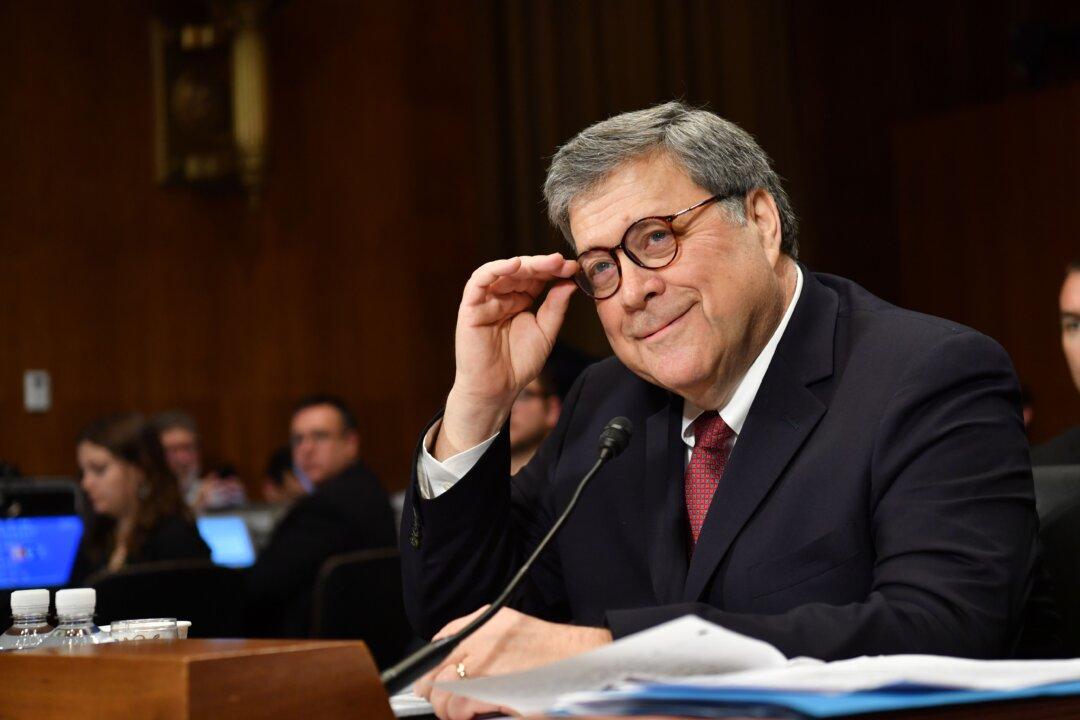Attorney General William Barr committed on May 1 to brief congressional lawmakers on the possibility that senior FBI officials used counterintelligence briefings with President Donald Trump’s transition team to gather intelligence on the incoming administration.
Barr made the commitment during his testimony before the Senate Judiciary Committee about the Justice Department’s investigation of Russian interference in the 2016 presidential election.





